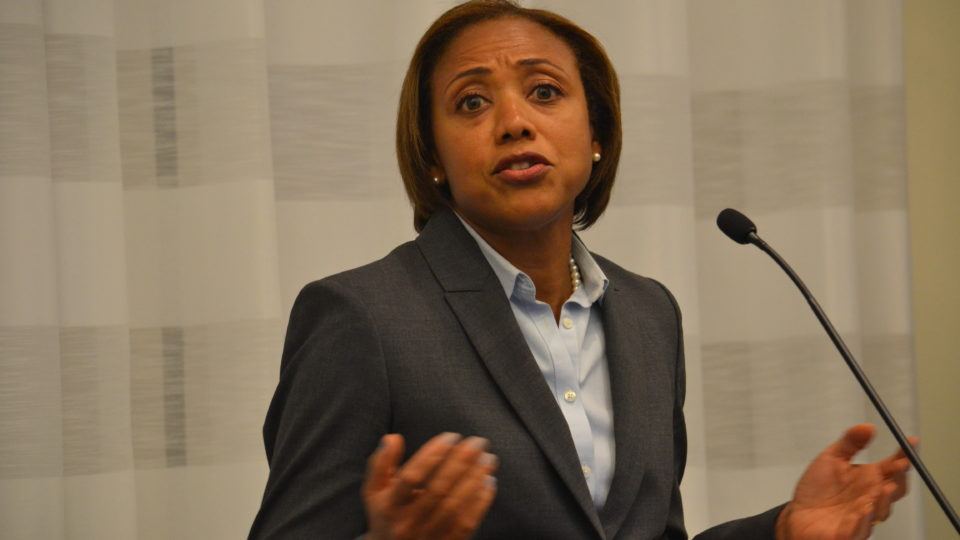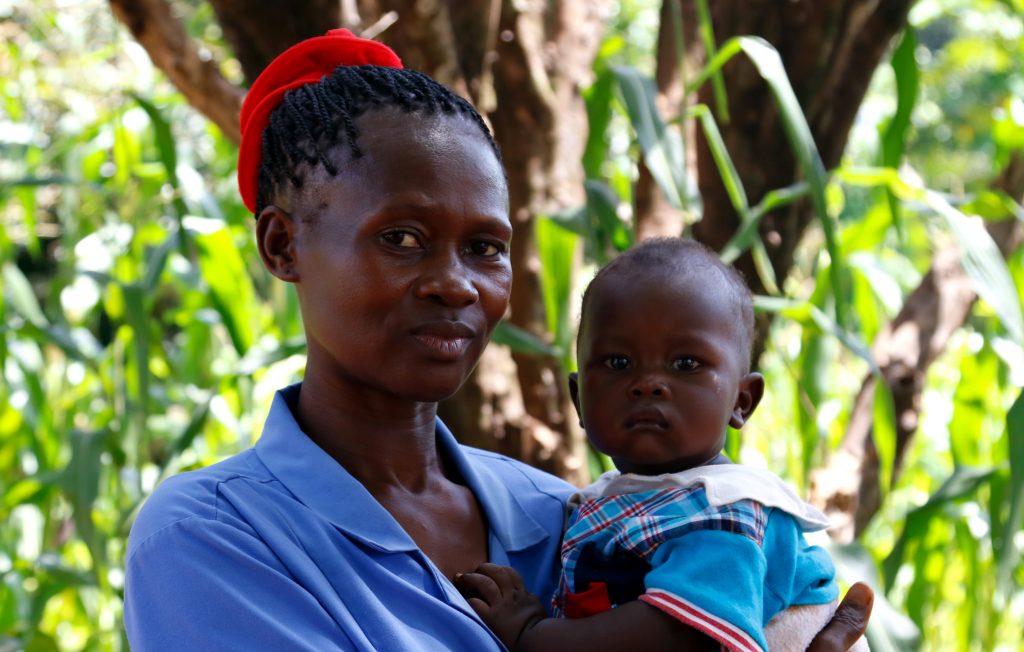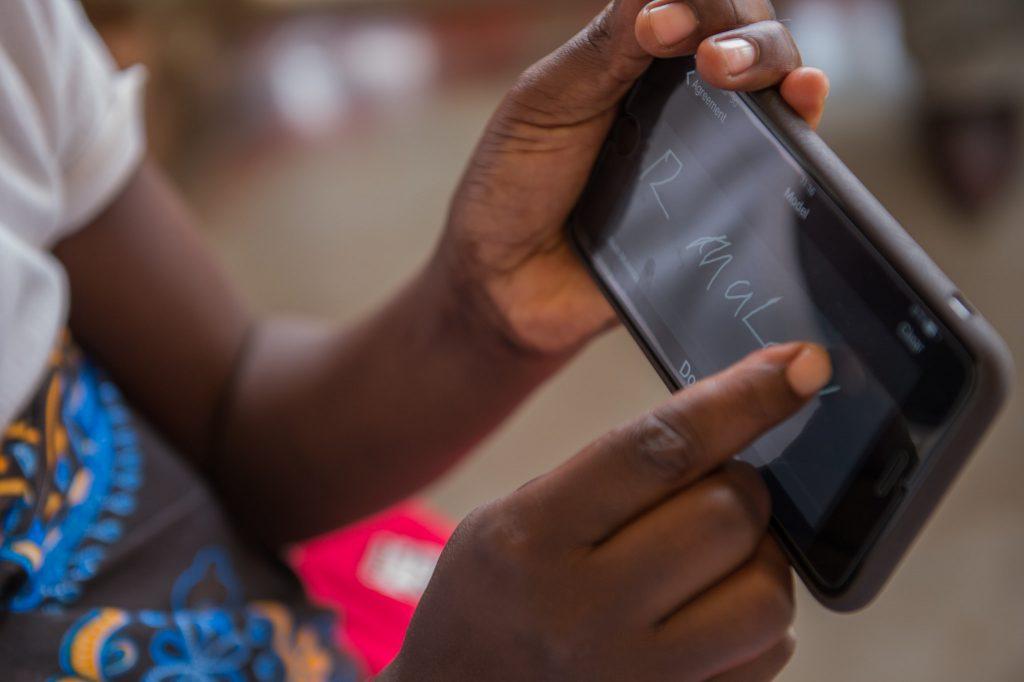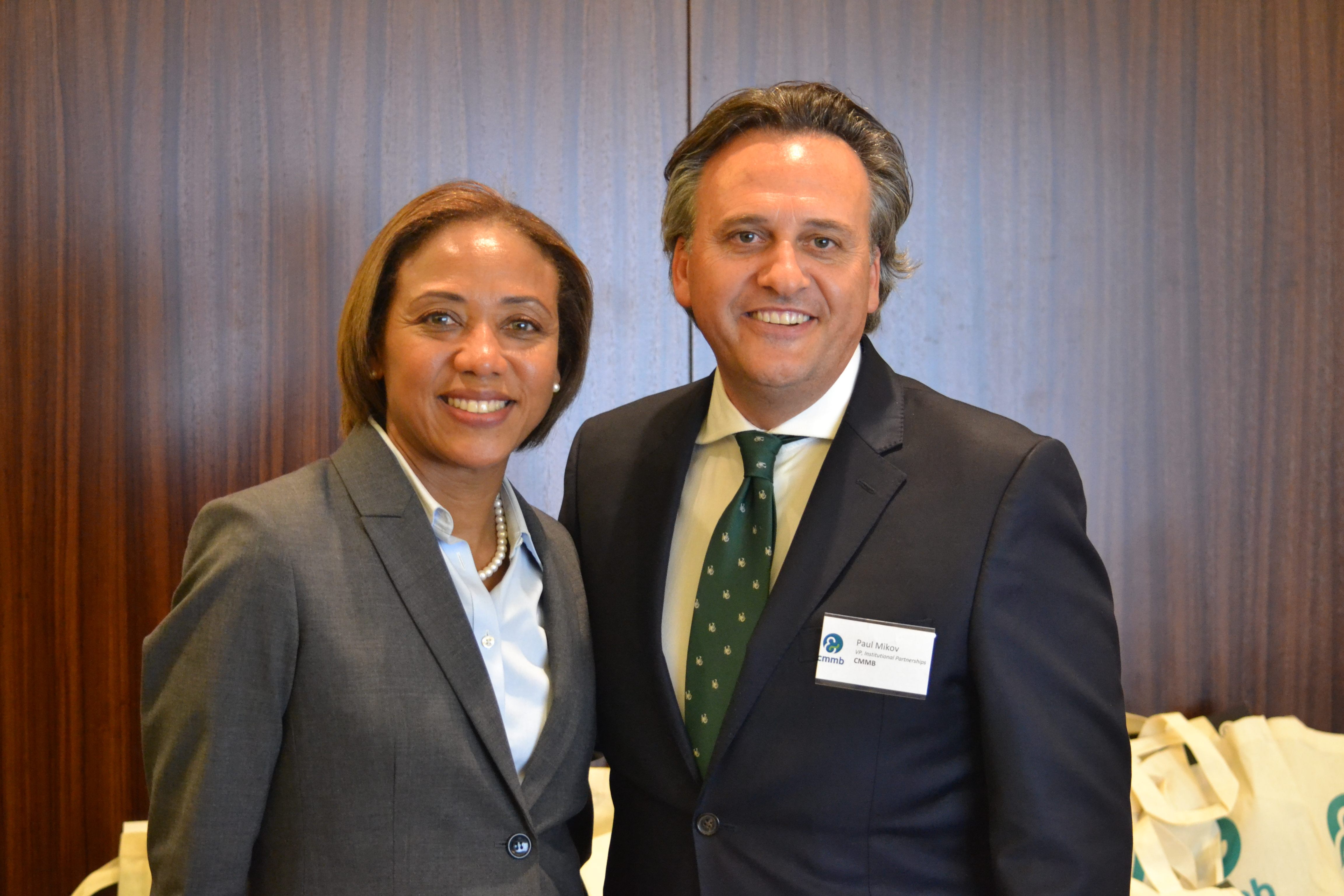Time for Action

On September 11th, CMMB held an event sponsored by KPMG in Midtown Manhattan. The event highlighted CMMB’s partnership with the Conrad Hilton Foundation, Johns Hopkins, and KPMG through the “digital health and women religious” initiative. There was also an update on CMMB’s $500 million commitment to the United Nation’s Sustainable Development Goal’s made in 2016 and the unveiling of their newest campaign, Join Hands.
We were lucky to have Michelle Gyles McDonnough, the senior adviser to the secretary general for SDGs, deliver a keynote at the event on September 11th. We captured her inspiring words.
Earlier this evening, we heard the beautiful reflection by Sister Carol. I want to say thank you for your prayer and for your words.
I think what struck me about it was her recall of hope and I think that is what brings us all here together. That’s the calling that takes us to the periphery and to the margins, and to see if we can help to improve the condition of people’s lives. I think that is why we are all here, and certainly why we do what we do at the UN.
Thank you to CMMB and KPMG along with the Hilton foundation and Johns Hopkins for inviting me to deliver this very brief address.
We’re living in very challenging times. The development challenges are very complex, and that we need to uphold health and other human rights as we pursue a sustainable developmental agenda that leaves no one behind, has never been more urgent.
However, If we’re to achieve this very ambitious agenda – an agenda that countries around the world have set themselves – as set out in the sustainable development goals (SDGs), we need really solid and impact partnerships at all levels. And that is why I would not only like to restate my thanks to the co-organizers for bringing everybody here together, but also to thank all of you in the room for the work that you’re doing both separately, as well as together, towards ensuring a safer, more prosperous and more healthy planet.
The agenda for sustainable development presents an answer to the many challenges we face. It’s a road map as we try to transform what we have into a better world. The 17 SDGs are universal, they are integrated, and they are indivisible. It means we need all of them to improve lives for all of us. But the SDGs cannot be achieved until human rights and dignity are ensured for individuals everywhere. To speak to the issues that we have been discussing so far, despite the progress that women, children, and adolescents have made, they still face major barriers in accessing essential good quality health services, particularly in very hard to reach settings. And protecting their rights to health and well-being, is at the heart of the SDGs and a cornerstone of global development.
There’s still a high toll of preventable deaths among women, children, and adolescents, and also still births. And digital health offers us an avenue and a range of capabilities to close that gap between people and their healthcare and that of their families so that they can live better and more productive lives and improve society. Digital health is opening doors for, not only how we reach those in less accessible settings, but also how we deliver information and services to those individuals.
Mobile health, telehealth, and other forms of digital health are improving access and reducing inefficiencies for women, children, and adolescents to receive quality care when they need it most, no matter how remote their location. By providing access to mobile technology, to basic information, we can prevent countless deaths. For example, diarrheal disease is the second leading cause of death in children under five years. It is both preventable and treatable. By providing access to health education, about how to prevent and treat this disease for families and communities through their mobile phones, we can make significant strides to prevent around 525,000 children under 5 deaths annually.
Working in partnership, we can, and we must re-double our efforts across sectors to drive effective and sustainable progress for lasting change, that reaches everyone no matter the setting. Together we have to, and we can, move the needle to improve health for all, and particularly for women, children, and adolescents.
The investment in research, data collection, and innovation that prioritize women, children, and adolescents, and the use of existing platforms for collaboration, such as the “every woman, every child” movement that CMMB is also a part of, are critical to achieve the results that we need.
When reproductive, maternal, newborn, children’s, and adolescent health is upheld, everyone benefits. Individuals, families, communities, all become more resilient. We all have the right to the highest attainable standard of physical and mental health, without discrimination wherever we are, and whatever our circumstances. And through digital health and working in partnership, we can close that gap between people and healthcare; securing not only a more inclusive development process, but also building a sustainable and equitable future in ensuring that no one else is left behind.
Now is the time for action. You, together and on your own, have taken very important steps forward and made very important commitments, not only to this health agenda, but also its links with the rest of this global development agenda. Health is just one energizer that powers many of the other goals, and you have taken very important steps, and we encourage you to do more, because together we can create a sustainable, healthy, and peaceful future for all.


